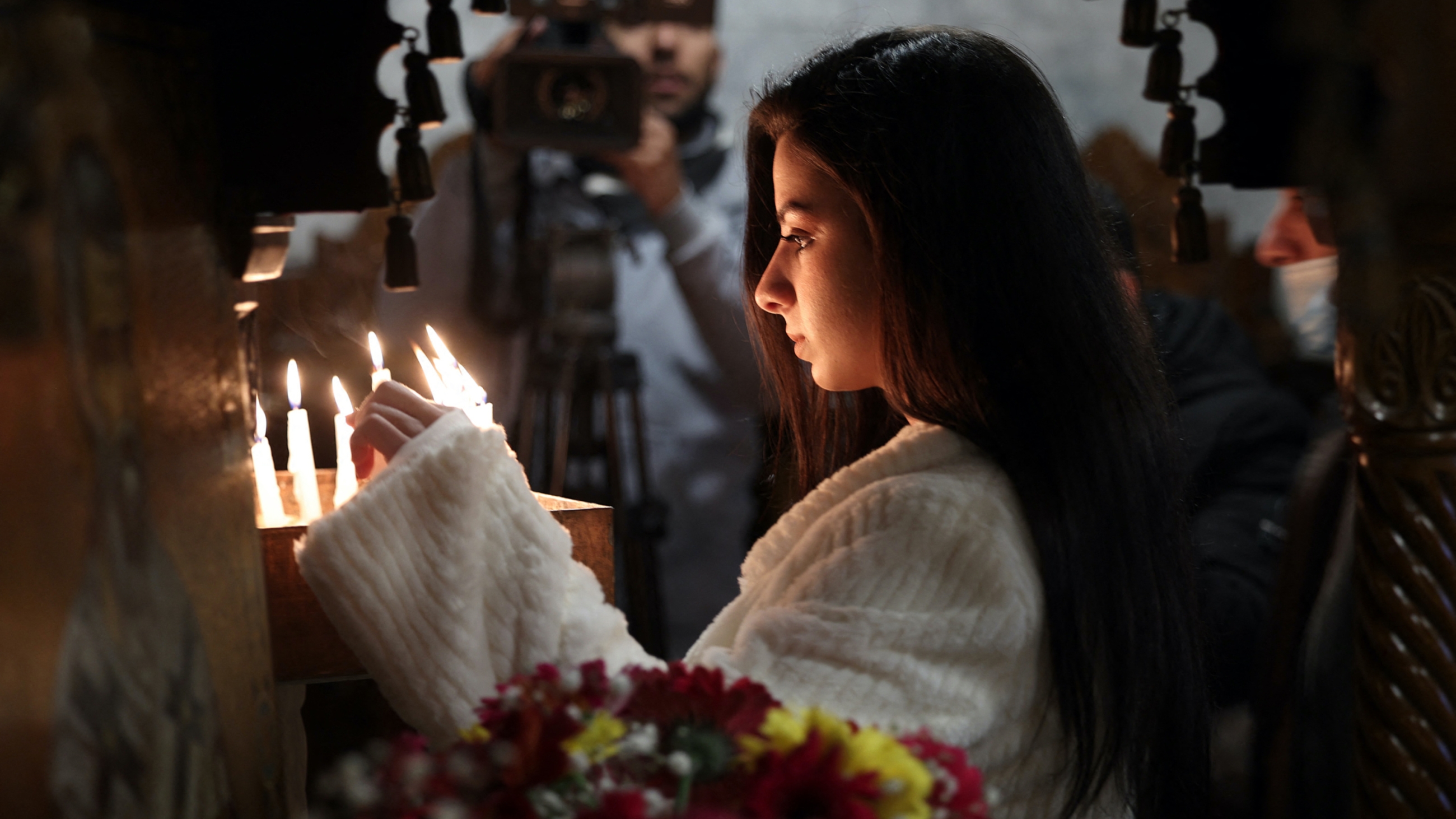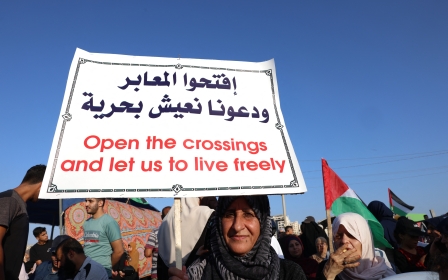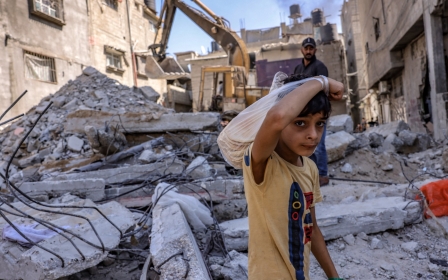Israel denies Gaza Christians permits to celebrate Christmas with families

Israeli authorities have rejected the travel applications of at least 260 Palestinian Christians in the Gaza Strip, denying them the chance to reunite with their families to celebrate Christmas this year.
Amongst a multitude of restrictive measures it imposes on Gaza, Israel has long limited the movement of Christians during their holiday seasons, preventing them from meeting with their families residing in the occupied West Bank or abroad.
A source in the Palestinian Civil Affairs Authority, the body responsible for communicating with the Israeli side and obtaining permits, said it had submitted applications for about 900 Christians, but only received approval for 650.
'We have the right to celebrate as a family together. This is the essence of Christmas'
- anonymous Palestinian Christian
Palestinian Christians said Israel has denied them the permits needed to pray in the Church of the Nativity in Bethlehem.
According to the latest statistics issued by the Latin Monastery Church in Gaza, about 1,100 Christians now live in the Gaza Strip - down from over 1300 in 2014 - most of whom are Greek Orthodox, although some adhere to the Latin Church.
New MEE newsletter: Jerusalem Dispatch
Sign up to get the latest insights and analysis on Israel-Palestine, alongside Turkey Unpacked and other MEE newsletters
Due to the dire economic situation, a 15-year siege, and multiple Israeli wars, the number of Christians in Gaza has decreased over recent years, with some moving to the West Bank or even emigrating abroad.
Kamel Ayad, the director of public relations for the Greek Orthodox Church in Gaza, said every year a list of Christians wishing to obtain a permit to travel to the West Bank city of Bethlehem during the Christmas season is submitted to Israeli authorities.
Ayad said that Israel has never granted permits for all Christians wishing to leave Gaza. In most cases, he added, the permits are issued at random, including granting permission to some members of one family and denying it to others. In some cases, permits are given to children but not their parents, or vice versa.
"It is our right as Christians to witness Christmas celebrations in the birthplace of Christ in the city of Bethlehem, just as it is available to all Christians of the world to travel to," Ayad told Middle East Eye.
"We feel very sorry that not all Christians were granted the necessary permits."
A right to celebrate
In early December, the Bethlehem municipality began the Christmas celebrations and the annual lighting of the Christmas tree in the city's Manger Square. Christians in Gaza will light the tree in the YMCA square on Saturday.
A Christian in Gaza, who preferred to remain anonymous, said that when he finally obtained his first permit in six years this month his joy was short-lived because his wife's application was denied.
"I cannot travel to Bethlehem on Christmas and leave my wife alone. This permit that was issued to me has no meaning on Christmas. We have the right to celebrate as a family together. This is the essence of Christmas," he told MEE.
Israel heavily restricts the movement of all Palestinians between the West Bank and the Gaza Strip, only allowing entry to humanitarian cases, a few thousand workers, and some Christians who want to travel to Bethlehem and Ramallah during Christmas and Easter.
"Israel practices all forms of repression and violations against the Palestinians, regardless of their religion or gender," Hani Farah, the secretary general of Gaza’s YMCA, said.
"Just as Israeli bombs and missiles do not differentiate between one Palestinian and another, the blockade and its repressive measures do not differentiate between a Muslim and a Christian.
"We are all trapped in Gaza and we share the pain and suffering."
Farah said that Israel "intentionally deprives" Christians of their joy during the holidays as even when permits are granted, not the whole family is allowed to experience the season together.
This article is available in French on Middle East Eye French edition.
Middle East Eye delivers independent and unrivalled coverage and analysis of the Middle East, North Africa and beyond. To learn more about republishing this content and the associated fees, please fill out this form. More about MEE can be found here.




